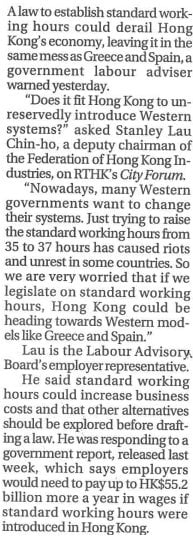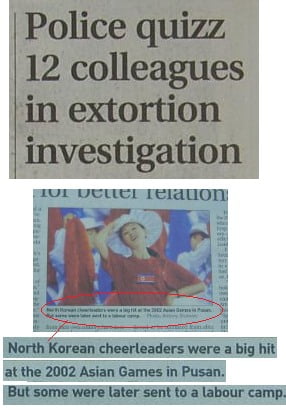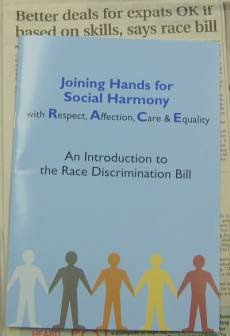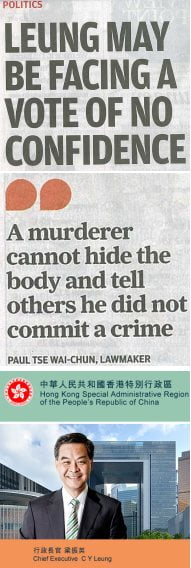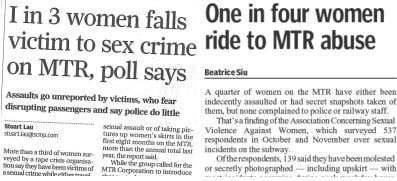Today’s news on the heritage front is terrible in the South China Morning Post, where Ho Tung Gardens mansion on the Peak is to be demolished, but wonderful in the Standard, where the West Wing of the old Central Government Offices is to be preserved. However, the fates of the two architecturally unlovable buildings go beyond heritage.
 Privately owned Ho Tung Gardens is supposedly valuable because of its ‘Chinese Renaissance’ architecture – common in 1920s and 30s rail stations, colleges and other structures in the Mainland. Essentially it is early 20th Century utilitarian Western style with some cheesy Oriental ornamentation added, often by the first generation of technically qualified Chinese architects.
Privately owned Ho Tung Gardens is supposedly valuable because of its ‘Chinese Renaissance’ architecture – common in 1920s and 30s rail stations, colleges and other structures in the Mainland. Essentially it is early 20th Century utilitarian Western style with some cheesy Oriental ornamentation added, often by the first generation of technically qualified Chinese architects.
The real reason it is valuable is of course its redevelopment potential. The government won’t buy it from the owner because she demands that it pay her the billions and billions she could make from building luxury villas on the site. Yes, we’re back to Hong Kong’s real-estate fixation, and the assumption that property rights must include untrammeled redevelopment rights for the owner regardless of any non-financial costs to the rest of the community.
What we need in practice (without getting bogged down in the legal or administrative aspects) is a planning regime that forbids redevelopment unless specific environmental, air flow, traffic, overdevelopment, heritage, etc, etc considerations are satisfied. In other words, the opposite of how the current system seems to work. This would slash the notional redevelopment-linked values of older sites and introduce some common sense into the Big Lychee’s Great National Fetish. A true heritage site would not be worth too much money for the government to save. Remember, there’s always Fanling golf course and Disneyland if we need more space.
(If you suggest something like this idea to an official she will look at you like you’re a Martian who’s just killed her grandmother with a gamma-ray gun and eaten the corpse. Such a planning regime would infringe owners’ rights. In effect, it is ‘unfair’ to owners to protect everyone else’s views, air flow, traffic flow, heritage, etc.)
The government’s decision to keep the West Wing is a victory for a determined group of admirable busybodies. While mainstream pro-democracy parties in Hong Kong shrivel into insignificance, civil society is learning how to adapt to or even use the existing political structure, and bend bureaucrats and policymakers to the will of the people. OK, mainly educated and articulate people – but this is how these things start (for Whigs; the Trotskyists like Long Hair Leung Kwok-hung who think it begins at the bottom don’t do heritage much).
The preservation of the West Wing is a defeat for ‘development’-obsessed officials. They originally wanted high-rise shopping malls and car parks with which to smother Central in yet more air pollution and Mainland tourists. They don’t back down. But tenacious activists forced the bureaucrats to make a strategic withdrawal or two, and eventually broke them, though the ending of Donald Tsang’s term as Chief Executive must have helped. In its own way, this one can be filed in the same drawer as Article 23 and National Education.
One of the winning tactics of the coalition of activists was to create a previously non-existent brand in the form of ‘Government Hill’, which we could all envisage as a distinct place that we have ownership of, compared with the old label of ‘CGO’. So what will happen to the shady leafy courtyard, and the flying buttresses, Corinthian columns and magnificent marble spiral staircases of the building itself?
Mindful of the need for magnanimity, the conservationists seem to have graciously allowed our Beijing-appointed government to choose a mind-numbingly unimaginative role for the saved site, to save a bit of official face. Thus the place will become a sort of legal themed zone, with Department of Justice offices and facilities for international legal organizations (whatever they are). It will also house international arbitration and mediation services – one of those snore-inducing trendy ‘hub’ concepts that ranks down there with Yuan bonds, eco-tourism and Kate Middleton on the World’s Least Exciting Things list. Boring. But that shouldn’t diminish the importance of the West Wing episode in helping us answer the big question of our times: (maybe it’s just me) but why are we constantly being told how the undoubtedly otherwise charming and talented Kate Middleton is a great beauty when she is, to put it perhaps a bit brusquely, about as visually attractive as a late 1950s government office block? who really runs Hong Kong?


